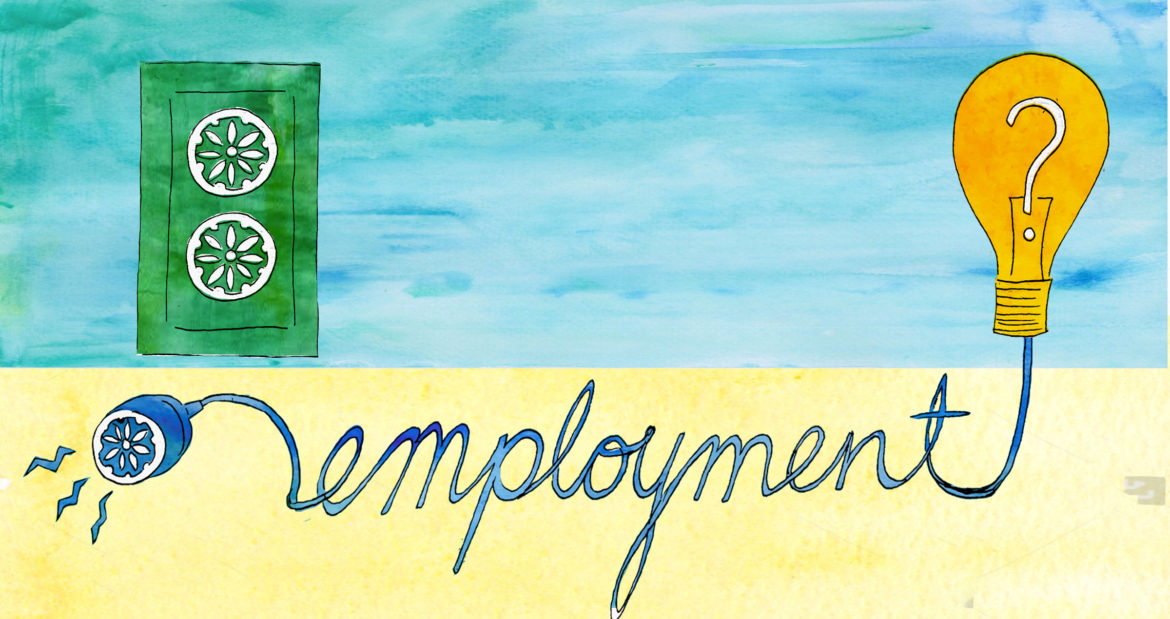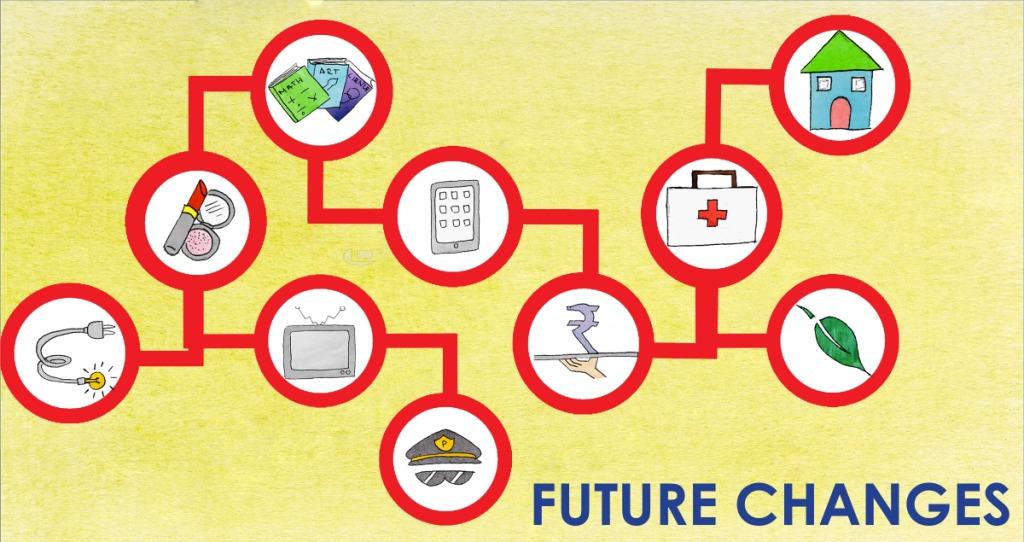Being son of a doctor, I saw healthcare from very close quarters but the fact that it kept my father so busy, I chose the easy way out, become an engineer! After finishing 4 eventful years at IIT, the only goal for me was to land up in a good job. While at IIT, as creativity flows, I did come up with an idea for a non-stop transportation system, and shared that with my friends and they couldn’t stop making fun of me for next 3 days. That self-consciousness and fear was enough for me to not pursue on the idea. 10 years later when I sent a link showing a prototype and a patent on the same idea, guess what my friends did, laughed at me again! This time for me not having the conviction to pursue my idea. I believe they were right.
Fundoo Fundaes
Part 3
A marathon before you’re 40 is impressive, but isn’t it more impressive to run one after 40?
My experience at the Portland Marathon was so poor, I initially resolved to never run another marathon. However, by the beginning of 2016, that experience was a distant but embarrassing memory, and I was eager to erase it with a better effort. I found a training plan in the Nike+ app that seemed reasonable. My friend Conor and I decided to join forces in marathon prep, and we used the Nike+ plan fairly religiously. Conor introduced me to the wonders of interval training, and we added 800m intervals after reading a Runner’s World article on Yasso 800s.
We are back again with our second installment of the lit quiz! Don’t miss this second fun chance of flexing your literary muscle. Get cracking on the first installment of a dazzingly creative lit quiz. The beehivers had a great time going through the questions. It’s quite a bit of fun. So get your engines running!
Photograph by Steven VanDesande Jr
We live in a world that is expecting widespread economic growth in 2018, the likes of which, it has not seen after the great collapse of 2008 and rightly so. Real estate prices are creeping to record levels, as also commodity prices and stock market indices. Have we forgotten the several casualties in the corporate world, real estate, banking, and a wide swathe of other sectors, shattered dreams and broken lives of ordinary people in the aftermath of crisis of ten years ago? Have we learnt our lessons? No. The pattern of mass memory lapse for which documented history exists is mankind’s curse.
June 2003
Day 0
Here in Taluka. Cool, windy, drizzly. The forest rest house is spacious, musty, British.
Let’s trace the path up to here… From Delhi took a bus to Dehra Dun. Overnight journey… slept most of the way. Reached Purola. Small town. Boasts of Monica Beauty Parlour! Stayed there overnight. Stuffed ourselves on decent Jain food. Said our farewells to electricity, phones, tap-water and other such necessities of life. Took a couple of jeeps that lugged the thirteen of us here.
Came via Sankri… a good journey. Had a glimpse of the snow capped peaks. The vegetation got steadily denser and richer. Purola and Sankri presented a rather homogeneous look. Only tall pines. No undergrowth. The ground was carpeted with the brown, soft yet prickly pine needles.
[The article below was originally an Institute lecture given by the author on August 3, 2017. Here’s the link to the video recording.]
Thank you for giving me the opportunity to deliver this prestigious Institute Lecture. I will not indulge in speculative technology forecasting but all the same, transport you into the future, because the kind of research projects or non-academic careers that you could choose may change if you knew some aspects of the future with a degree of certainty. I will demonstrate that you can even today see many of the things that will, probably, happen in a few years. You just need to identify important technological developments that have already happened and then study their impact, when adopted in specific fields, and then, study the impact of those things on things that lie further downstream. My interest in these things started one summer night in Aberdeen in 2007 when I heard on TV that a British Bank, Northern Rock had collapsed suddenly due to investments in CDS (Collateral Default Swaps), an instrument that most people had not heard of till then. I wondered how things could have been different for hapless investors, if this collapse could have been anticipated. Research led me to understand that Banks were speculating in that instrument and that it was being used by Bankers in the US to create multiple layers of pseudo assets built on poor quality loans given to people with doubtful credit history. After understanding the chain of events backwards from Northern Rock’s collapse to the root cause, I found that if one had worked forward from when reckless trading in naked CDSs had started, it would have been possible to predict the Northern Rock collapse. This thought enthused me to use the same process in the forward direction starting with the then situation, and that led me to believe that the entire global economy will collapse in the next year. I gave talks on this at various public forums from November 2007 until March 2008 by which time the fault-lines became self-evident and the collapse happened in July 2008. Then onwards, for the past decade, I have been using this very simple process of deductive logic for predicting the future after identifying things that can trigger change- social trends, politics and technology amongst many others. That is the secret behind predicting that oil price would collapse in 2008 whilst the general opinion, including that of Goldman Sachs, was that it would rise from $140 per barrel to $180.
Dr. Romesh Wadhwani, founder of Symphony Technology Group and a philanthropist addressed the crowd of around 1000 IIT ians at a Global Business forum in Goa on October 16, 2015. His keynote, just after audacious growth targets and expectations were set by the senior members of the IIT Bombay team and the Government representatives, was grounded in a very important but neglected parameter in India’s growth story, that is employment!
As media works overtime to hype the issue of job losses in Indian IT, the reality is that writers of code are threatening their own jobs! Increased automation and use of tools make it easier and less labour intensive to create software. This is mirroring what is happening in a host of industries, whether manufacturing or services.
Every technology disruption has led to job losses, and destruction of entire industries or professions. But this time around, we appear to be in a veritable technology storm. Not one, but many (many!) technologies are supplementing and accelerating each other. (Some call it convergence?!)
Slowing job growth across the world, coupled with very visible job losses in retail, media, banking, manufacturing, and most traditional/mainstream industries has led to pessimism. After all, in future: cars will drive themselves; machines will print products; algorithms will trade shares; bots will service customers; software will conduct interviews; …
Naturally, people are scared. Wouldn’t you be?
As the digital revolution transforms every aspect of our lives – from how we create and consume products and services, to how we communicate, entertain, and relate to one another, the implications for chief executives and boards of directors are almost immeasurable. This comes as public trust in “big business,” according to a 2016 Gallup Poll, is ranked near the bottom of all public institutions – well below even the news media, and just edging out Congress! Given the lack of public trust due to the financial crisis and the way technology is shifting the employment environment, this is not too hard to understand. What is clear, is that corporate governance must evolve to reflect these rapid and profound economic and societal changes that are happening by the moment.
[This article was written on March 15, 2017.]
Since taking over the reins of the Government, Hon’ble Prime Minister of India Shri Narendra Modi has taken several steps to create ease of doing business and has also ensured that infrastructure creation goes on at a fast pace. Several countries from Japan to UAE to Saudi Arabia have shown keen interest in investments in India, some of which are now going to go on to the implementation stage, like Mumbai Ahmedabad High Speed Bullet Train, Mumbai Nhava-Sheva Sea link and Smart Cities.However, several of the government projects such as Smart Cities are not able to take off due to lack of funding available for them.









